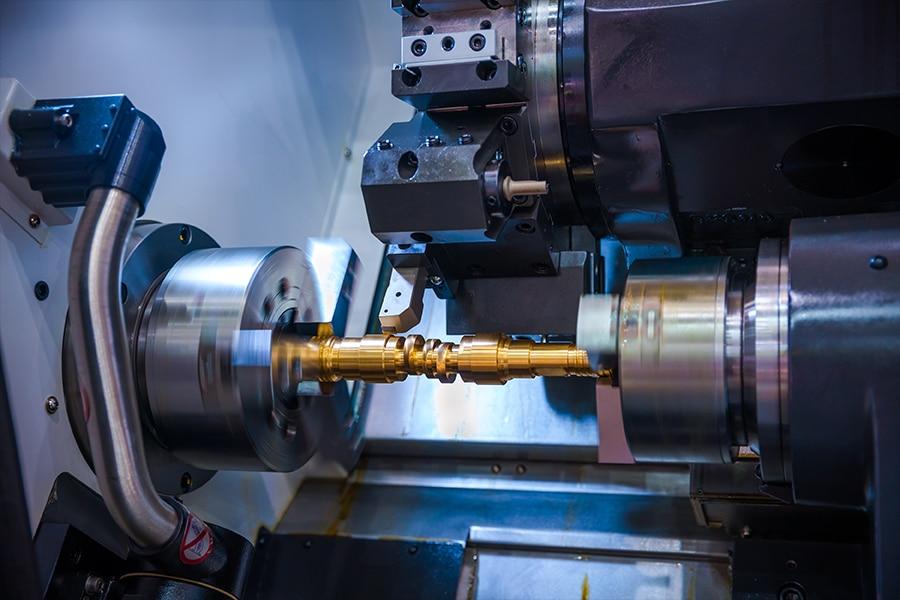CNC machining (Computer Numerical Control machining) is a manufacturing process that involves using computer-controlled machines to remove material from a workpiece to create precise and intricate parts. This process is widely used in various industries, including medical device manufacturing. China has been a significant player in the global manufacturing market, including medical devices, due to its cost-effectiveness, skilled workforce, and advanced technology capabilities.
When considering CNC machining in China for medical devices , there are several important aspects to consider:
- Regulations and Quality Standards: Medical devices are subject to stringent regulations and quality standards to ensure patient safety. Make sure that the manufacturer you choose in China complies with international standards such as ISO 13485 (Medical devices – Quality management systems) and FDA regulations (if you plan to market your devices in the United States).
- Supplier Selection: Choose a reputable CNC machining supplier that specializes in medical device manufacturing. Look for companies with a proven track record in producing high-quality medical components and devices.
- Communication and Language: Effective communication is crucial in ensuring that your design specifications are accurately translated into the final product. Make sure the supplier has proficient English-speaking staff or consider hiring a translator if needed.
- Prototyping and Iterative Design: CNC machining is ideal for creating prototypes and iterating on designs before final production. Work closely with the supplier to ensure that your design requirements are met during the prototyping phase.
- Materials and Processes: Different medical devices may require specific materials that are biocompatible, sterile, and suitable for medical use. Ensure that the chosen CNC machining process and materials meet the required specifications.
- Intellectual Property Protection: Protecting your intellectual property is crucial when outsourcing manufacturing to China. Consider legal measures, such as non-disclosure agreements (NDAs), to safeguard your designs and proprietary information.
- Logistics and Shipping: Factor in shipping costs, lead times, and potential delays when planning your production schedule. Consider working with a freight forwarder to manage logistics efficiently.
- Quality Control and Inspection: Implement a robust quality control process to ensure that the manufactured parts meet your specifications. Consider performing inspections either remotely or by visiting the manufacturing facility in person.
- Cost Considerations: While China can offer cost advantages, keep in mind that the cheapest option may not always guarantee the best quality. Balancing cost-effectiveness with quality is essential for medical device manufacturing.
- Risk Mitigation: Have a contingency plan in case of unexpected issues, such as production delays or quality concerns. Consider having alternative suppliers or manufacturing locations as backups.
It’s important to conduct thorough research, due diligence, and possibly even visit potential manufacturing partners in China before making a decision. Working with experienced consultants or experts in medical device manufacturing and international business can also help you navigate the complexities of outsourcing CNC machining for medical devices to China.
CNC machining is widely used in the medical device industry for the manufacturing of various medical devices. Some examples of medical devices that are manufactured using CNC machining include:
-
Surgical instruments: Surgical instruments play a crucial role in various surgical procedures. CNC machining allows for the production of precise and complex surgical instruments, such as scalpels, forceps, retractors, and clamps.
-
Orthopedic implants: CNC machining is used to manufacture orthopedic implants, such as hip and knee implants. These implants require high precision and accuracy in order to fit perfectly within a patient’s body and provide long-term durability.
-
Dental prosthetics: CNC machining is used to produce dental prosthetics, including crowns, bridges, and dental implants. These devices need to be accurately and precisely manufactured to ensure optimal fit and functionality.
-
Prosthetic limbs: CNC machining is utilized in the design and production of prosthetic limbs. This technology enables manufacturers to create custom-made prostheses that fit the unique needs of individual patients.
-
Hearing aids: CNC machining is used to manufacture hearing aids, which require precise shaping and intricate internal components. CNC machines allow for the mass production of hearing aids with high accuracy and consistency.
-
Medical equipment components: CNC machining is used to produce various components of medical equipment, such as diagnostic devices, imaging equipment, and infusion pumps. These components need to be accurately machined to ensure the proper functioning of the medical equipment.
By utilizing CNC machining in the manufacturing process, medical device manufacturers can achieve high precision, accuracy, and repeatability, leading to consistent quality and reliability of the final products. Moreover, CNC machining allows for complex geometries and intricate features, enabling the production of advanced medical devices that meet stringent design requirements.

